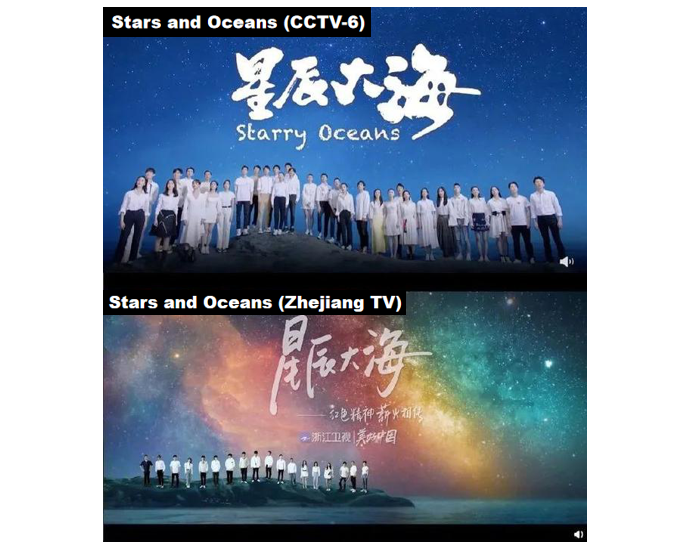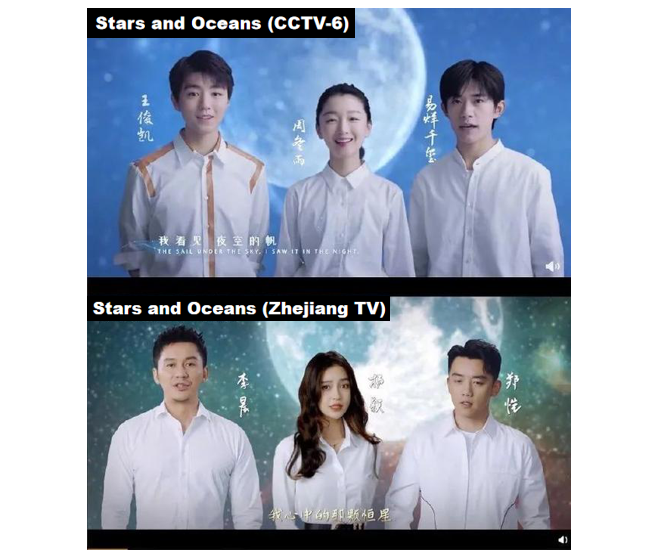On May 20, 2021, CCTV accused Zhejiang Television of the technical duplication of its promo on Weibo.
In recent years, May 20 has become a new Valentine’s Day celebrated by Chinese millennials. Zhejiang Television released a music video to mark the 100th anniversary of the foundation of the Chinese Communist Party on the very day. To lure a young audience, a hit song on Douyin called “Stars and Oceans (星辰大海)” was covered by 18 Chinese TV and movie stars in the video. The name of the song is exactly the same as the name of a promo of a show released by CCTV-6, CCTV’s movie channel, on January 1, 2020. Billed as a jumpstarter for fresh actors and actresses, the show “coincided” in the adoption of the phase “Stars and Oceans (星辰大海)” in its name, which allegedly came from a Japanese sci-fi novel well known in China, suggesting unlimited possibilities the future holds.

If similar naming was not a crime, then the duplication conducted in some shots of Zhejiang Television’s patriotic music video were too evident to be understood merely as taking inspiration.

According to Article 3 of the Copyright Law of the PRC, the two videos proper fall into the category of cinematographic works and works created by a process analogous to cinematography. According to Article 47, anyone plagiarizing a work and/or exploiting a work without permission of the copyright owner shall be liable for a compensation amounting to not more than 500,000 RMB yuan.
Lin Yong, Director of Zhejiang Television, has responded by claiming a misunderstanding and played down the accused plagiarism as peer learning.
For a long time, China Central Television (CCTV), as its name suggests, is the country’s undisputed flagship television broadcaster and has been a role model for the constellation of China’s local TV stations. Despite its programming intensely studied and referenced, CCTV’s advertising revenue has been staying on top up to now. Notwithstanding, with the marketization of broadcasting in China, “Big Five” local television stations, including Zhejiang Television, have achieved nation-wide presence by satellite and grown into CCTV’s unignorable competitors for advertising revenue. Convenient imitation has surely rattled its nerves.
Zhejiang Television was accused of plagiarizing Korean reality shows such as Running Man, the Return of Superman, Begin Again, etc to reap strong ratings. In the buzz generated on the Chinese social media, the TV station’s dubious reputation seems to have to some extent tipped the balance of the row with CCTV.
@ 2021 China IP Magazine









